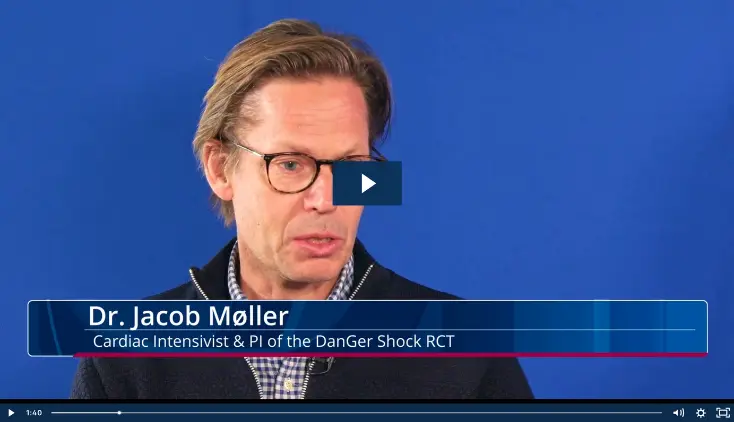Clinical Research & Data, Complete Revascularization, Unloading, AMI Cardiogenic Shock
Burzotta: Status Quo and Outlook for pMCS Strategies
Francesco Burzotta, MD, discusses the status quo and outlook for use of percutaneous mechanical circulatory support (pMCS) strategies in both high-risk PCI and cardiogenic shock. Dr. Burzotta is an interventional cardiologist at Gemelli Hospital in Rome, Italy. He is resharing the presentation he gave at the European Society of Cardiology (ESC) meeting in August 2022.
Dr. Burzotta explains how Impella can facilitate PCI and he describes results seen at his institution in 37 patients with low left ventricular ejection fraction (LVEF) undergoing high-risk PCI with Impella®:
- 100% of patients had continuous pump assistance with no device malfunction
- All patients had SBP>78 mmHg with no bailout use of inotropic drugs
- 47% of patients had significant hemodynamic drops reflecting potential instability without Impella
He presents results of LVEF assessed before PCI and at follow-up in 86 complex and high-risk coronary intervention (CHIP) patients undergoing elective Impella-protected PCI demonstrating statistically significant recovery of LVEF. He also highlights several other studies demonstrating improvement in LVEF, stating “So we can summarize showing that there are consistent data supporting the concept that LV ejection fraction may improve with Impella Protected PCI that is successfully done.”
Dr. Burzotta then explores 3 procedural variables that can impact the efficacy of Protected PCI.
Extent of revascularization. He describes the revascularization index obtained using the BCIS-Jeopardy Score and its application in the Revascularization extent in IMPella ITalian Registry (R-IMP-IT) study and PROTECT II substudy.
Timing of pMCS. Dr. Burzotta discusses survival data in both cardiogenic shock and high-risk PCI patients supported with Impella before PCI compared to patients receiving Impella support during and after PCI. He also looks ahead to the STEMI-DTU Pivotal study currently underway.
Vascular complications. He highlights measures for mitigating the impact of large bore access on bleeding and vascular complications such as angio-guidewire-ultrasound (AGU) guidance for femoral access, techniques for obtaining postprocedural hemostasis, alternative access strategies, and optimal bailout and complication management strategies.
He concludes by emphasizing that knowledge is improving and ongoing. He notes that studies are incorporating best practice protocols and he looks ahead to results from the Danish German Cardiogenic Shock (DanGer Shock) randomized controlled trial (RCT), RECOVER IV RCT, and PROTECT IV RCT.


